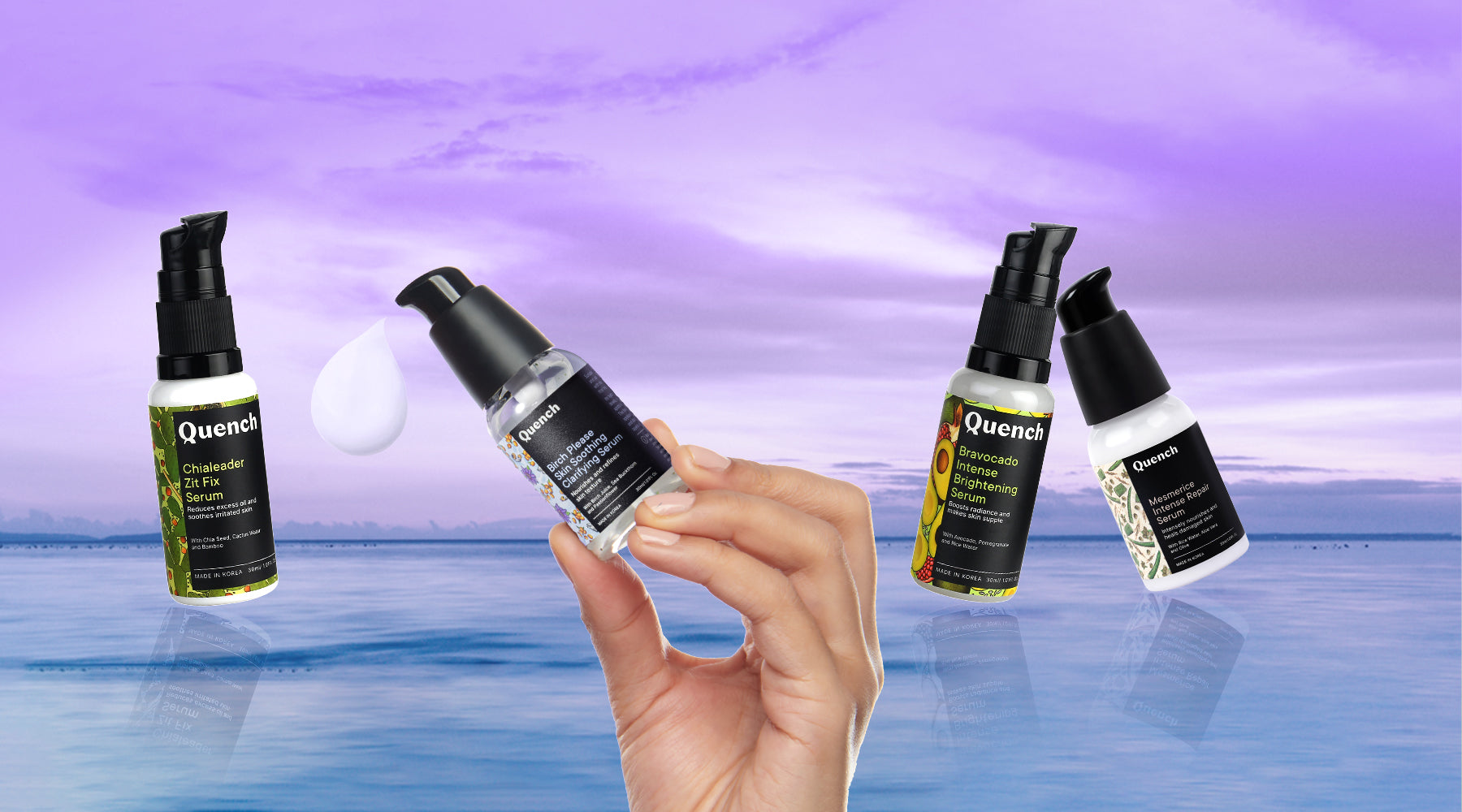
Skincare Basics 101: Introducing Retinol In Your Skincare Routine
Retinol. Based on how you use it there can be two suffixes to this word – ah, retinol or eww, retinol! The latter is mostly the repercussion of using it incorrectly, which leads to redness, dryness, and damaged skin barrier. Whereas when you do it right, retinol/retinoids can give you the skin of your dreams!
By now, you might already know the benefits of this ingredient. But to refresh your memory, it is an anti-ageing wonder that tackles acne, pigmentation, dullness and uneven skin tone.
Hearing the benefits, if you’re getting all jumpy to introduce retinol in your skincare routine, then here’s how to do it right.
Ways to introduce retinol in your skincare routine
Start slow, very slow
 The one thing we often overlook with skincare is patience, and retinol requires a lot of it. Slapping it on every night is not going to shorten your path to good skin, in fact, do the exact opposite. So, make it a point to apply it only twice or maximum thrice every week, with days off in between.
The one thing we often overlook with skincare is patience, and retinol requires a lot of it. Slapping it on every night is not going to shorten your path to good skin, in fact, do the exact opposite. So, make it a point to apply it only twice or maximum thrice every week, with days off in between.
Not high, but low concentration
With retinol, you must always work your way up. Today, you will see products that very specifically mention the concentration of retinol they hold, and if you’re a newbie, go the lowest of the low. Say 0.01%. Don’t fall for the trap thinking that it’s barely anything, when it is retinol, it is more than enough. Once your skin gets comfortable, you can go upwards and increase your concentration.
Use it only when the moon is out
Exfoliation as a rule of thumb should only be done in the PM, and guys, this is retinol we’re talking about. The MVP of the lot. So, make sure you only begin your skinformation process after sunset, or as a part of your PM skincare routine.
SPF is your BFF
The next logical step is using SPF. Retinol eliminates dead skin cells, and resurfaces fresh ones. You don’t want the new babies to bear the brunt of the harsh sun, correct? Which is why SPF. If you’re not liberal with this step, you’ll notice discoloration, tanning, and even age spots. Oops!
Begin at the right time
 The poster age for using retinol is mid 20s or early 30s. One might experience crow’s feet, premature signs of ageing, or sun spots when they hit the big 30s, so it’s best to nip the bud before it blooms. But also to get a head-start or to minimize other concerns like acne and pigmentation, your mid 20s are a good time to start using retinol. Any age before that, and you’re exposing your skin to a potent, although unnecessary ingredient that your skin might not gel well with.
The poster age for using retinol is mid 20s or early 30s. One might experience crow’s feet, premature signs of ageing, or sun spots when they hit the big 30s, so it’s best to nip the bud before it blooms. But also to get a head-start or to minimize other concerns like acne and pigmentation, your mid 20s are a good time to start using retinol. Any age before that, and you’re exposing your skin to a potent, although unnecessary ingredient that your skin might not gel well with.
The sandwich trick
As amazing as retinol is, it can also be drying. To make sure that your skin reaps all the goodness sans the dryness, you can use the sandwich technique. Apply a nourishing moisturizer all over your face, then the retinol, and then the moisturizer again. This especially helps if your skin is dry or sensitive. You can also mix the retinol with your moisturizer.
Now, that you know all the tricks of the trade, get ready to uncover your healthiest skin with retinol!
Read more
Discover Quench Skin-Loving Ingredients
Skincare Ingredients That Promise Glowing, Healthy Skin
5 Korean Skincare Ingredients You Need To Create The Ideal Skincare Routine


